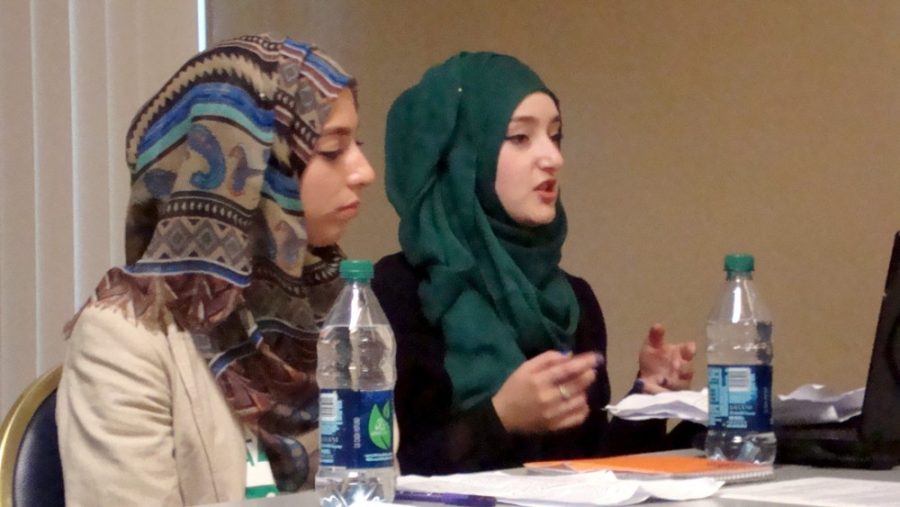The UA chapter of Students for Justice in Palestine hosted Palestinian students from Birzeit University Wednesday afternoon for a discussion about what it is like to live and go to school in Palestine under U.S.-Israeli military occupation.
Rachel Beaty, a history graduate student, said one of the goals in the SJP constitution is for members to connect themselves and to act as facilitators to make things happen for the Palestinian community in Tucson.
Gabriel M. Schivone, a member of SJP, said that ethnic studies depicting the Palestinian perspective are banned in Israel, similar to the Mexican-American studies books that were banned in some Tucson schools.
“This is my history!” said Shatha Hammad, an junior studying English literature and language. “You should teach me my history, not teach me the other narrative. It’s my history.”
Deema AlSaafin and Hammad, students from Birzeit University, shared stories depicting the struggles they have had with education in Palestine. AlSaafin, a senior studying English literature and language, said they are sharing these stories to show they are not just one group.
“There are thousands of narratives and stories,” AlSaafin said. “These are just two.”
She said Israeli occupation has imposed separation amongst Palestinians and the territories they live in. The West Bank is its own territory, Jerusalem is increasingly becoming its own territory and the state of Israel is separated, AlSaafin added.
“My family was ripped apart by that,” AlSaafin said. “My father and brother could not live with us anymore because they were assigned a different address. We couldn’t be a family, in essence, and that severely affected my education.”
AlSaafin went on to say that the occupation affected her decision on where to attend college. She originally wanted to study abroad at a different university but didn’t want to leave her mom alone.
Hammad said the Internet is monitored constantly so self-education online cannot occur.
“It makes you feel like, in the eyes of other people, you are not human, or something below what they consider human,” Hammad said.
Hammad said because the occupation is so strict, the 10 Palestinian students who came to the U.S. had to do so by lying.
“We lied about getting here, but we’re not sure what will happen when we go home,” Hammad said. “We can’t lie about what we did here; it’s all over Facebook, all over social media. The consequences of this, we don’t know what’s going to happen. We might be in prison, we might not be able to ever leave Palestine again. But it’s worth it. We’re here to get the message out.”
_______________
Follow Brandi Walker on Twitter.









